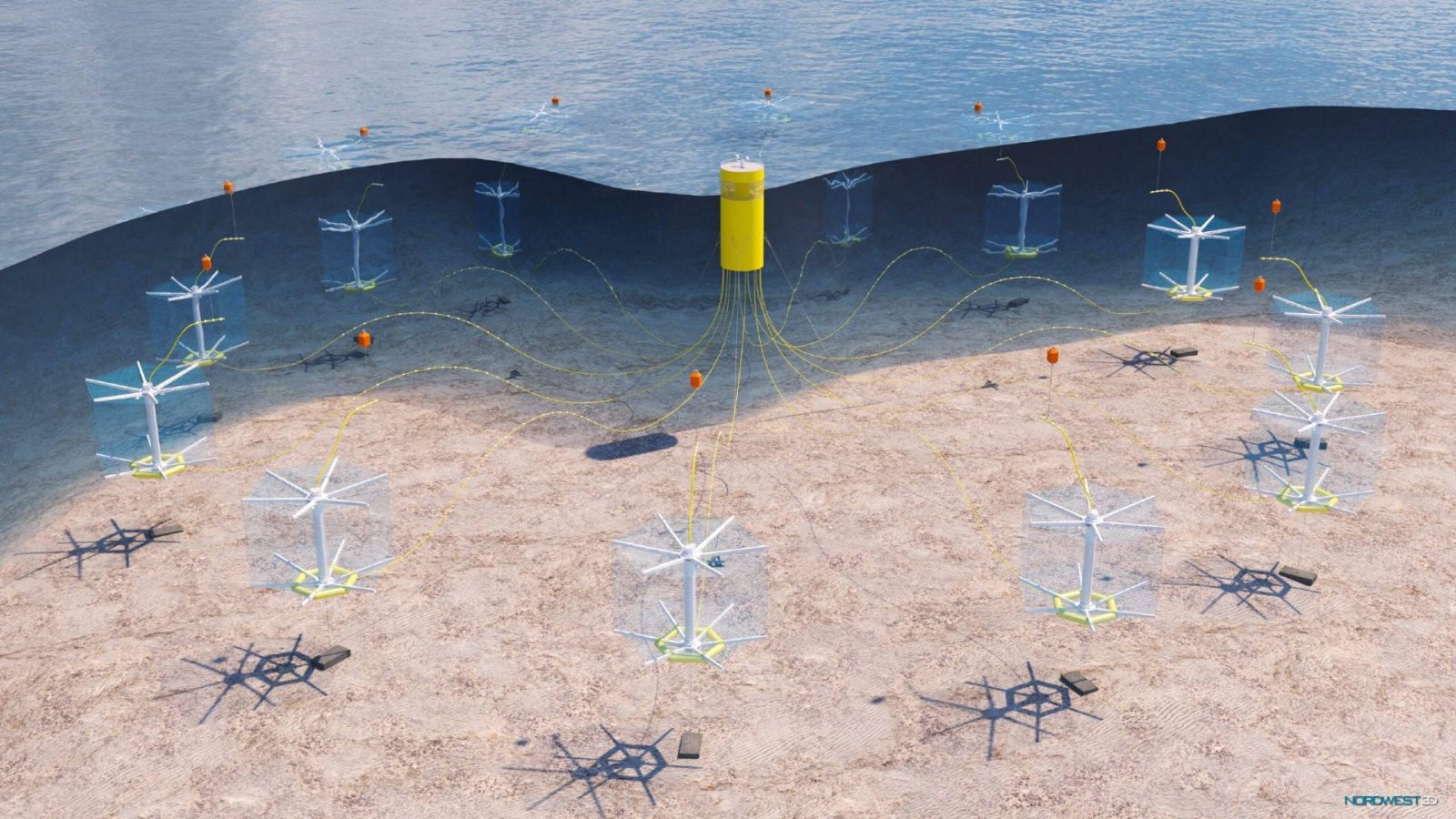
A 2.5 gigawatt (GW) Swedish floating offshore wind farm is going to be paired with an innovative sustainable fish farming system.
Floating offshore wind and fish farming
Sweden-based Freja Offshore, a joint venture between floating offshore wind developer Hexicon and Mainstream Renewable Power, is developing Mareld, an enormous floating offshore wind farm off Sweden’s west coast. And Freja Offshore is now collaborating with Norway’s SubFarm, which produces open-ocean aquaculture cage systems for sustainable fisheries, on the Mareld project.
SubFarm’s aquaculture cages will be situated between Mareld’s floating wind turbine foundations and tethered with their own anchoring system. The cages, which can withstand harsh North Sea conditions, will be lowered to a depth of 50–70 meters (164-230 feet) and brought to the surface for harvesting. SubFarm’s system can be monitored remotely.
“Seafood and offshore wind power are two industries that Sweden will need more of in the future, not least to strengthen preparedness. That is why we want to find ways to combine these two [things],” said Freja Offshore CEO Magnus Hallman.
This is how big Mareld will be
Mareld floating offshore wind will potentially deliver 12 terawatt hours (TWh) annually. That’s the equivalent of more than half of the electricity consumption of the nearby Västra Götaland region – and the majority of Sweden’s west coast currently imports its electricity.
To put Mareld’s 2.5 GW size into perspective, Norway’s 88 megawatt (MW) Hywind Tampen is currently the world’s largest floating offshore wind farm – and offshore wind is such a fledgling industry that Hywind Tampen is operating nearly half (47%) of the world’s floating offshore wind capacity.
The project submitted a planning application last year. Mareld’s website has a timeline that estimates that it takes three months to finish the completion procedure and three to eight months to complete the referral procedure. If the Swedish government approves the project, it will take another three to four years until the wind farm produces its first electricity – that’s roughly 2028.
Freja Offshore is planning to develop offshore wind at four sites in Sweden. Together, they have the potential to supply over 6 million households with renewable electricity.
Read more: A big offshore wind company is building a fish farm inside a turbine’s foundation
To limit power outages and make your home more resilient, consider going solar with a battery storage system. In order to find a trusted, reliable solar installer near you that offers competitive pricing, check out EnergySage, a free service that makes it easy for you to go solar. They have hundreds of pre-vetted solar installers competing for your business, ensuring you get high quality solutions and save 20-30% compared to going it alone. Plus, it’s free to use and you won’t get sales calls until you select an installer and you share your phone number with them.
Your personalized solar quotes are easy to compare online and you’ll get access to unbiased Energy Advisers to help you every step of the way. Get started here. – ad*
FTC: We use income earning auto affiliate links. More.





Comments